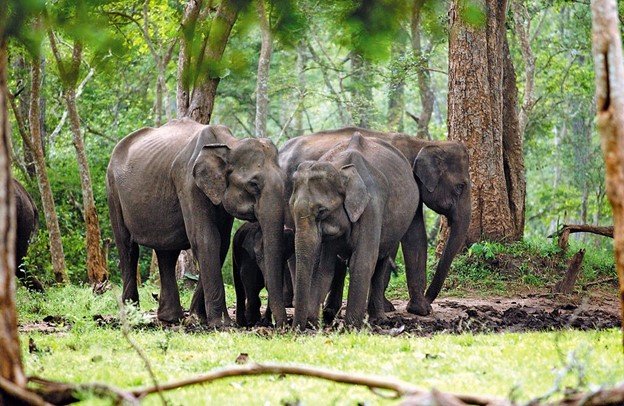Aadhimalai Pazhangudiyinar Producer Company Limited Wins 2021 Equator Prize
SULi extends warmest congratulations to India’s Aadhimalai Pazhangudiyinar Producer Company Limited, Winner of the 2021 Equator Prize. The award, organized by the Equator Initiative within the United Nations Development Programme, is awarded biennially to recognize outstanding community efforts to reduce poverty through the conservation and sustainable use of biodiversity. Winners are selected based on impact; innovation; scalability and replicability; resilience, adaptability, and self-sufficiency; social inclusion; and gender equality. This is a tremendous achievement.
Aadhimalai came about as a result of the work of the Keystone Foundation, which was established in 1993 to work towards the development of indigenous people in India, particularly, the Nilgiri Biosphere Reserve (NBR), where a number of hunter-gatherer communities were practicing honey hunting and subsistence agriculture. In 1996, Keystone set up its first retail outlet – The Greenshop, which was a marketplace for products made by the tribal communities. This first venture soon expanded, and as sustainable enterprises grew, stakeholders recognized a need to bring all value addition activities together under a single umbrella, while at the same time transferring control to the tribal community of the region. On consultation with the leaders of the tribal communities in the NBR and legal consultants, it was decided to register the Farmer Producer Company in 2013.
Today, Aadhimalai is a 1,700-member cooperative, with a gender-balanced membership, managed and run entirely by Indigenous people from the NBR. It improves livelihoods across 147 villages by processing and marketing a diverse range of forest products and crops. Through local value addition, members earn premium prices on a wide range of sustainably collected local products such as honey, soap nuts and berries, and phoenix leaves, as well as organically cultivated products such as coffee, pepper, silk/cotton, cereals, spices, fruits, and more. The Company also provides hands-on training for shareholders who regularly monitor harvesting and agricultural practices to ensure product quality and prevent overuse of resources, and for social enterprises across the region.
SULi recognizes that, globally, biodiverse-rich areas coincide with regions of high poverty. Yet, often poor people have limited rights to access, use, and benefit from the biodiversity with which they live in close proximity. In 2019, SULi collaborated with the Keystone Foundation to host a workshop in the NBR, bringing together experts who work on issues of human use of natural resources, conservation of biodiversity rich habitats, endangered species, policy, and governance to discuss what is working and what is not in terms of sustainable use in India. The group brainstormed strategies to advance discussions of sustainable use and livelihoods alongside conservation and development, and determined conditions universally important to sustainable use in the region. These included: a) empowering communities to manage resources by integrating traditional knowledge with official management practices; b) getting the young people equipped with skills to manage resources and carry forward their traditional uses; c) monitoring resources in the long term and understanding the ecological links to resource sharing with wildlife; d) consumer awareness and education about sustainable use and ecological links of wild resources; and e) science of sustainability needs to be communicated in simple/common language that speaks to many stakeholders.
“Aadhimalai is a leading example of a community owned and governed enterprise,” says SULi Member and Director of Biodiversity at the Keystone Foundation, Dr. Anita Varghese. “Something noteworthy about the institution is that they represent one of the most neglected and marginalised peoples on the planet,” she continues. “When the company made their website in 2016, they used the line ‘shift the power’ and that, I feel, is what they have to tell the world. Indigenous people, highly marginalised communities, are standing on their feet negotiating with the market and making a space for community owned enterprises. In the long term they are in a position to get even stronger since they are based on the model of the circular economy by being ‘restorative and regenerative’.”
The Aadhimalai Pazhangudiyinar Producer Company is an excellent example of how sustainable development solutions work for people and nature, to conserve biodiversity and to build resilient communities. It demonstrates how, with strong governance and sound management, sustainable use could become the norm, rather than the exception, in India. As Dr. Varghese notes, “Today, in pandemic times, we owe them big gratitude – more power to them.”


